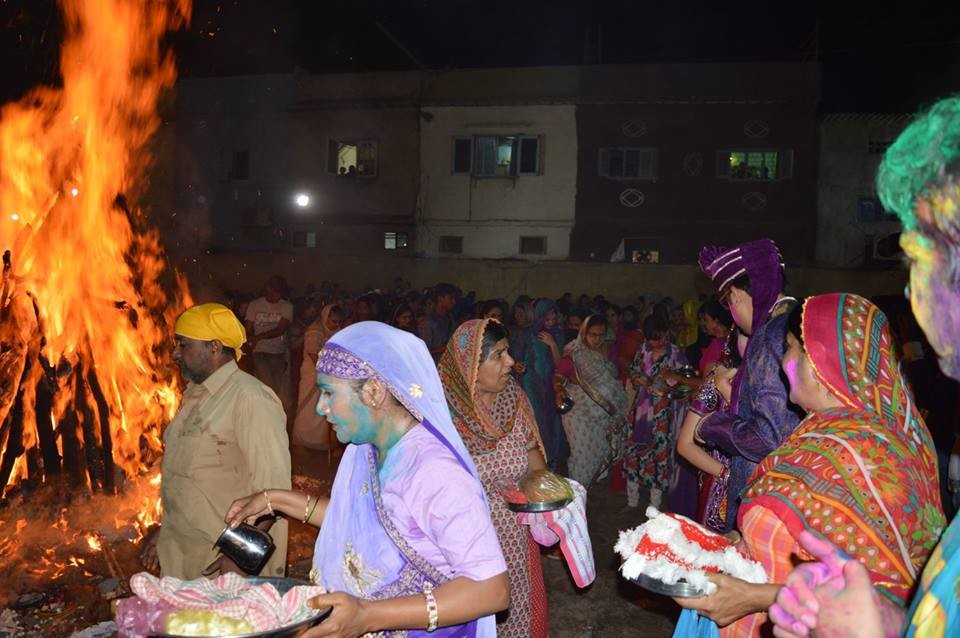
The state’s decision to celebrate Holi as a national holiday is a breath of fresh air

For the Hindu youth of Karachi or Sindh for that matter, this year’s Holi celebration held a special meaning. The provincial government’s decision to declare the festival a holiday was greeted with utmost pleasure and was celebrated to match the significance of the first non-Muslim religious event to be officially acknowledged by a government in Pakistan after decades.
On the evening of March 23 -- a national holiday -- Hindu devotees gathered at various temples across the province to celebrate the festival of colour meant to mark the triumph of good over evil. In Karachi, the biggest gathering took place at Swami Narayan Mandir, the centuries-old Hindu enclave in the old part of the city.
Hundreds gathered in the open compound of the temple to drench themselves in colors.
"It’s not usual that you spread colour till late night," says Sanjesh Dhanja, a social activist who runs Pakistan Hindu Seva, "but the thought that tomorrow is a holiday is very comforting so the party will continue till late midnight."
A huge bonfire was set at the centre of the open compound, which kept burning throughout as Hindu families danced around the fire to celebrate the end of Holika -- the demoness.
Young Muslim students from various universities also joined their Hindu compatriots in the city to "spread colour and have a good time," as Walid Rahman, a student of a private engineering college, puts it.
Outside the temple, a busy twenty-year-old Ramesh is selling powdered colours at inflated prices along with other religious souvenirs like little statues of Hindu gods and jewellery for married Hindu women e.g. Mangalsutra.
"This year the turnover is conspicuously huge," estimates Ramesh, "and you see a lot of Muslims too perhaps because it’s a holiday tomorrow."
Ramesh has been running the souvenir shop for the past five years, and admits in private that he is making a killer profit selling colours. Children are jostling around him to buy the vibrant paunches aesthetically decked on the counter -- being sold at thrice the market price on a usual day.
Children are the ones most engrossed in the business of playing with colours. Some of them are armed with water-guns filled with colours to drench an opponent head-to-toe.
Visitors are often ambushed by the warring children who shoot at each other from the constantly shifting dugouts amid the throng of crowds.
The importance of good, upbeat music can never be emphasised enough at Holi. This year, an amateur DJ took over at the Swami Narayan Temple, just to add some "creative twists to the old classics."
Bollywood offers enough songs that cover the most peripheral rituals of Holi. In fact, every year, at least one song is custom-made for the occasion. But the classics refuse to die.
‘Rang Barse’, a 1981 song from the Amitabh Bachhan starrer Silsila seems to be the anthem of the festival as young men and women went berserk when the DJ tuned it on.
Over the past several years, the Holi celebration, which was more or less a closed-door event for the Hindu community, has assumed wider acceptance in the city.
"More and more people from across the religious divide are showing up in the event," says Sanjesh Dhanja. "This year the festival has assumed an overarching significance -- beyond the religious identity."
Holi has become a sort of a Sindhi festival, which is extremely encouraging for the people of the province which has the highest population of Hindus in Pakistan.